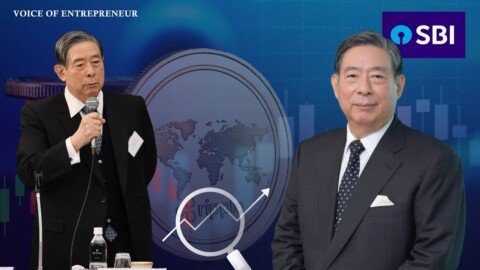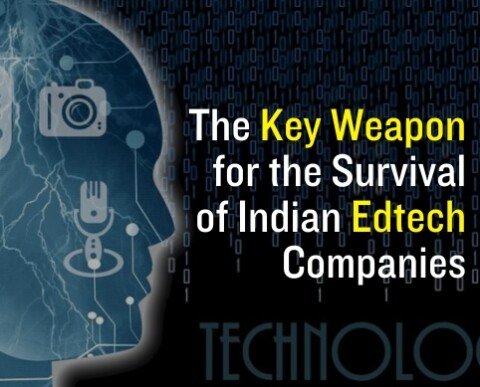The significance of corporate sustainability is increasing daily. Consumers are becoming more selective about the businesses they do business with and are calling out those who engage in greenwashing regularly. Consequently, there is an increasing requirement for the C-suite and senior leadership teams to consider social responsibility. Companies with a good corporate social responsibility (CSR) rating have returns that are 19% greater than those with a poor rating, according to a three-year study. It was also discovered that over 40% of a company’s reputation is currently attributable to CSR activities.
Leadership is vital in advancing sustainability, and today’s business leaders face significant pressure to integrate sustainable practices into their operations. To ensure that businesses worldwide address the social, environmental, and economic challenges affecting our planet, leaders must possess the necessary knowledge and skills.
Although 90% of business leaders recognize the importance of sustainability, only 60% of companies have a formal sustainability strategy. Businesses can reduce their environmental impact and enhance social responsibility through various measures, from recycling and minimizing plastic use to reducing waste, adopting more efficient energy sources, and being transparent about dividends and profits.
However, integrating sustainability into all leadership roles is crucial for greater, longer-lasting effects. More companies everywhere must make sure that CSR is at the center of all they do. Furthermore, a robust sustainability plan must be put into action. This will guarantee that the company is operating appropriately and using a suitable strategy.
The impact of SMEs
Increasing the sustainability of small and medium-sized businesses is crucial to reaching the goals of overall sustainable development. In the UK private sector, SMEs account for 61% of employment and more than half of turnover, proving that “every little helps” when it comes to sustainability efforts. Additionally, approximately 5.6 million SMEs—or 99.9% of all businesses—exist in the United Kingdom.
Sustainability has been embraced by many SMEs and is now a key component of their brands and business plans. For instance, the majority of B-Corps are smaller businesses that take advantage of their strong sustainability performance to obtain a competitive edge. Some SMEs, on the other hand, are under pressure from clients, staff members, and government authorities, and they have a difficult time finding the resources to switch to more environmentally friendly working practices.
A useful initial step for businesses is to utilize the UN’s Sustainable Development Goals (SDGs) Ambition Benchmarks to identify, prioritize, and set sustainability objectives. Leaders can then track and report on their sustainability progress regularly using these goals. It’s also crucial to integrate these objectives into core practices and processes, enhancing their implementation across operations, products and services, people management, and corporate finance.
What does a sustainable business leader look like?
Strong leadership is needed to push companies toward greater environmental compliance, corporate responsibility, and long-term financial, social, and environmental sustainability. It necessitates bold, determined, and strategic action that simultaneously upends the status quo. With the ongoing effects of climate change, biodiversity loss, and resource depletion on enterprises and consumer concerns, strong, convincing leadership is especially important.
To achieve this, business leaders must excel in strategic and systems thinking while being innovative and collaborative. Systems thinking supports strategic thinking by prompting leaders to ask: how do things function, what should our goals be, and how do we integrate various elements to reach those goals? Systems thinking involves viewing the business from multiple perspectives and questioning how it can operate differently to drive meaningful change. While modern CEOs are often recognized for their immediate decisiveness, future leaders focused on sustainability must also align short-term business objectives with long-term strategic plans.
Advocating for sustainable change can be more complex than it initially appears. There may be resistance to new initiatives or skepticism about investments, making effective communication strategies and collaborative approaches crucial for leadership teams to succeed. Collaboration not only aids in generating diverse solutions to persistent issues but also ensures that all stakeholders, including customers and employees, are involved in sustainability efforts. This approach guarantees a comprehensive plan that addresses every aspect of the business. For instance, Kate Brandt, Google’s Chief Sustainability Officer, emphasizes that collaboration is essential for achieving net zero goals. She has noted that after years of working on decarbonization, it became clear that “ecosystem change” is necessary and such changes “can only happen in partnership.”
This requires holistic leadership, which is an approach to leadership that takes into account the “who” and “where” of leadership in addition to what has to be done and how. The era of autocratic leadership is over; instead, growth and empowerment are the new norm.
Using holistic leadership
To effectively benefit everyone, business leaders focusing on sustainability will need to take into account a diverse range of cultures, livelihoods, backgrounds, and experiences. Throughout this century and beyond, climate change is predicted to have a substantial impact on human health, agriculture, food security, water supply, transportation, energy, and ecosystems, increasing disruptions.
Embracing this approach may necessitate upskilling. One of the UN’s Sustainable Development Goals emphasizes the need for education providers to “ensure inclusive and quality education for all and promote lifelong learning” and for higher education institutions to equip students with the skills to generate sustainable value for business and society—fostering an inclusive and sustainable global economy. Therefore, if business leaders seek to develop the skills needed for a holistic leadership role, choosing an education provider that aligns with the UN’s SDGs would be highly beneficial.
Businesses will not only need to be able to make sustainable decisions to slow down the planet’s rapid decline, but they will also need to be cognizant of the social changes that accompany this decline. As a result, this will call for long-term, comprehensive thinking.
To make sustainable business decisions, business executives will need to have a holistic worldview that recognizes, comprehends, and challenges humanity’s place in a global ecosystem. Leaders must also possess knowledge and formulate their plans based on solid moral and ethical precepts.
It takes risk management and ethical leadership to successfully handle challenging sustainability issues. Practicing the four V’s is crucial to understanding ethical leadership. Values, vision, voice, and virtue are what the four Vs stand for. Starting with “identifying and integrating their core values to carry out their vision in service to others and voice that vision convincingly and authentically, all the while practicing virtuous behavior,” is how leaders should approach this process. This strategy recommends that executives take a step back after making decisions to assess whether their actions are in keeping with their morals and beliefs as well as the organization’s mission to serve others.
Ethical leadership involves not just demonstrating integrity but also fostering it within the organization. For it to be effective, leaders must be seen as role models by their employees. This underscores the importance of effective communication and collaboration with all stakeholders within the business.
Sustainable leadership should focus on achieving enduring, meaningful improvements in learning processes rather than just temporary gains in achievement scores. Business owners should embrace the development of a learning culture within their organizations and actively engage with other sustainability leaders to acquire the necessary knowledge. Moving forward requires engaging, collaborating, and making strategic, well-considered decisions.





